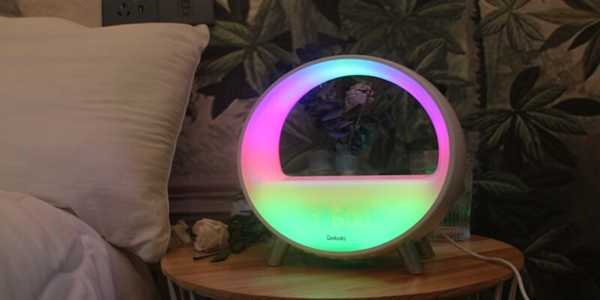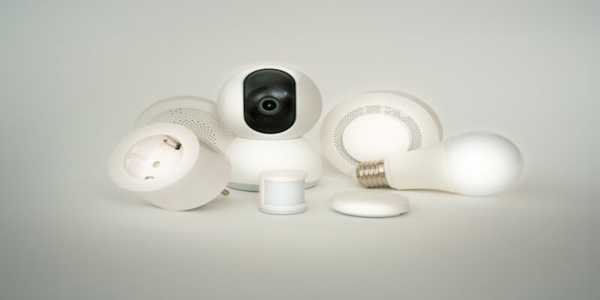9 Smart Home Devices That Will Transform Your Living Space in 2025
Smart home devices result from our continuous pursuit of security, leisure, and ease. But they have come a long way, and today, with AI, they are on a whole other level. This blog post will highlight 9 types of smart home devices that can improve your lifestyle.
Smart home devices result from our continuous pursuit of security, leisure, and ease. But they have come a long way, and today, with AI, they are on a whole other level. This blog post will highlight 9 types of smart home devices that can improve your lifestyle.
The Evolution of Smart Home Devices: A Brief Overview
Smart home devices have evolved significantly over the past decade. Early gadgets focused on basic automation, like turning lights on and off. As technology advanced, connectivity improved, and smart devices became more integrated. Wi-Fi and Bluetooth made it easier to link multiple devices in one system.
Voice assistants, like Amazon Alexa and Google Assistant, redefined how users interact with their homes. Today's smart home devices are driven by AI and machine learning, adapting to user preferences.
For example, thermostats learn your schedule to optimize temperature settings. Security systems now provide real-time monitoring and alerts. The evolution of smart home tech reflects a shift toward convenience, energy efficiency, and personalized living.

Smart Lighting: More than Just On and Off
Smart lighting has gone beyond simple controls to redefine home illumination. These systems let you adjust brightness, color, and schedules from your smartphone.
Many smart lights integrate with voice assistants for hands-free operation. Energy efficiency is another major advantage, as LEDs paired with automation reduce waste. For example, lights can turn off when no one is in the room.
Some smart bulbs, like Philips Hue, can sync with music or movies for immersive experiences. These systems also improve home security by simulating occupancy when you're away. With features like motion detection and customizable lighting scenes, smart lighting enhances comfort and safety. It's an affordable way to upgrade your living space while saving energy and adding convenience.
AI-Powered Home Assistants: Your Digital Butler
AI-powered home assistants have become central to smart homes worldwide. Devices like Amazon Echo and Google Nest respond to voice commands for effortless control.
They help with setting reminders, playing music, and controlling smart devices. AI makes these assistants smarter by learning your habits over time.
For example, they can adjust lighting and temperature based on your routine. Advanced models offer features like natural language understanding for more intuitive interactions.
These assistants are also hubs for managing other smart home devices, simplifying home automation. They even support shopping, providing recommendations and placing orders for you.
Smart Thermostats: Efficiency Meets Comfort
Smart thermostats combine comfort and energy savings, making them essential in modern homes. These devices learn your preferences and automatically adjust the temperature throughout the day. For instance, the Nest Thermostat adjusts settings when you're away to save energy. Some models provide detailed energy usage reports, helping you lower utility bills.
Smart thermostats integrate seamlessly with voice assistants and other smart devices. Many also include remote access via smartphone apps to control your home's temperature from anywhere.
Features like geofencing allow thermostats to turn on or off based on location. With rising energy costs, these devices offer both convenience and long-term savings.

Advanced Home Security: Keeping Your Space Safe and Sound
Advanced home security systems combine cutting-edge technology with peace of mind. Modern systems include smart cameras, motion sensors, and doorbell cameras like Ring.
These devices offer real-time monitoring and send alerts directly to your phone. AI-powered security cameras can distinguish between people, pets, and vehicles.
Smart locks allow you to control access remotely and create temporary guest codes. Some systems even integrate with lighting and alarms for a more comprehensive setup.
Features like facial recognition add an extra layer of security to your home. Advanced home security ensures your property is safe, whether home or away.
Smart Kitchens: Gadgets That Make Cooking Effortless
Smart kitchen devices simplify cooking and improve your culinary experience. Appliances like smart ovens, refrigerators, and coffee makers can be controlled via apps.
For instance, you can preheat your oven remotely or get alerts when food is ready. Smart refrigerators like Samsung's Family Hub track groceries and suggest recipes.
Voice assistants help you set timers, play recipes, and manage shopping lists hands-free. Some smart gadgets, like instant pot devices, offer guided cooking programs.
These innovations save time and reduce effort, making meal preparation more enjoyable. With smart kitchens, cooking becomes more efficient, convenient, and fun for everyone.
Entertainment Upgraded: Smart TVs and Audio Systems
Smart TVs and audio systems have revolutionized home entertainment. Smart TVs allow you to stream content from apps like Netflix and Hulu. Voice control makes it easy to change channels or search for shows. Some models, like LG OLED TVs, offer stunning visuals with Dolby Atmos sound for a theater-like experience.
Smart soundbars and speakers enhance audio quality and integrate with voice assistants. Systems like Sonos provide multi-room audio, letting you play music throughout your home.
Gaming consoles now support 4K visuals and VR for immersive gameplay. These devices bring convenience and quality to your entertainment setup, creating the ultimate home experience.
Health and Wellness: Smart Devices for a Better Lifestyle
Smart health devices are transforming how we approach wellness at home. Smart scales track weight, body fat, and other metrics, syncing data to apps.
Wearable devices like smartwatches monitor heart rate, sleep patterns, and activity levels. Air purifiers with smart features ensure clean air by monitoring indoor quality.
Even fitness equipment like treadmills now integrates with apps for guided workouts. These devices provide personalized insights to help you reach your health goals. By focusing on wellness, smart devices make it easier to live a healthier, more balanced life.
What's Next for Smart Home Devices in 2025?
The future of smart home devices promises even greater innovation in 2025. AI will become more integrated, allowing devices to anticipate user needs. Interoperability between brands will improve, creating more seamless ecosystems.
Sustainable designs and energy-efficient features will gain more focus. Emerging technologies, like 5G and edge computing, will enhance device responsiveness. Smart homes may also see advancements in robotics, with AI-powered cleaners and assistants.
Personalization will take center stage, with devices adapting to unique user preferences. With these trends, smart home technology will continue to transform daily living, making it smarter and more intuitive than ever. Good Luck with your choice!